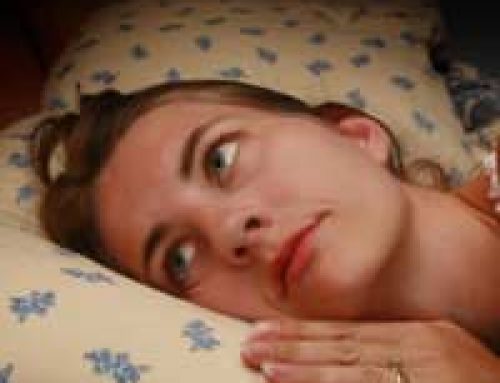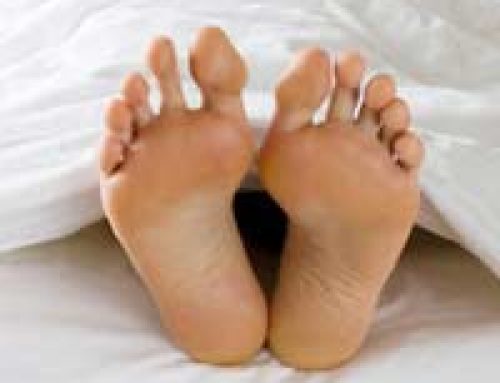 You are so tired; you fall asleep watching the television. You then drag yourself to bed…And, surprise, surprise! You can’t sleep. Then follows another sleepless night, and you are so exhausted you fall asleep on the train coming home…
You are so tired; you fall asleep watching the television. You then drag yourself to bed…And, surprise, surprise! You can’t sleep. Then follows another sleepless night, and you are so exhausted you fall asleep on the train coming home…
If you recognise this, or a similar scenario, you need to pay attention to your sleeping environment. Repeat after me. I will sleep in my bed, and only in my bed…
Sleep Debt
Many of us have lost the connection with bed and a good night’s sleep. We sleep in all sorts of places. In the car, watching TV, at the hairdresser, at our desks…In fact, anywhere we can catch a few minutes. Of course, there are great benefits from a few moments of relaxation during a restful day. But this is not relaxation; it is the body trying to catch up with lack of sleep. In other words, this is Sleep Debt and it needs to be repaid.
Some people find that they sleep well on holiday or when they are away from home. This suggests that something is stopping them getting proper nights sleep in their own bed. Surprisingly researchers have found that sleepers often report a better night’s sleep in a sleep laboratory than at home. Even a sleep laboratory can provide a more restful environment than a familiar bedroom!
Sleeping Away
So why do we find it so difficult to sleep in our own beds? There are two main reasons for this.
Expectation
Feeling exhausted we drag ourselves to bed expecting a good night’s sleep. When this doesn’t happen on a regular basis, our expectation is replaced by hope, and eventually by frustration and despair. We no longer ‘expect’ a good night’s sleep – we expect a long night of sleeplessness.
This increased anxiety means we are even less likely to sleep and may take naps in other places. The bedroom is now a place connected with sleeplessness, rather than sleep.
A Place to Sleep
Imagine a really lovely hotel room. The first thing you see is a beautiful large bed – fresh sheets, soft pillows, warm duvet. The room is clear of papers, clothes, and other paraphernalia. The television and any other gadgets are hidden, and there is nothing to remind you of the stresses of the rest of the day.
Take this one step further. Nobody knows where you are so the phone is unlikely to ring, or anyone arrive at the door. The bath tempts you to have a warm, fragrant soak before wrapping yourself in a warm robe.
Finally, after a warm drink, you slip into bed and envelop yourself in the soft covers. The room is dark, quiet and comfortably cool. You sleep.
And Only for Sleep
So why is this room so different from your own room? Even if you have created an environment to help you sleep, it is hard to remove the connection between this room and the stresses of the day.
It is important to see the bedroom as a place for sleep and only for sleep. Not for working, watching television, studying or using as an office. By removing any connections with the rest of the day you will re-establish the bed/sleep connection. You will also find it easier to ‘disconnect’ from the rest of the day if you remove anything that distracts you from your prime bedroom activity – sleep!
Put Out the Light
We are programmed to sleep in the dark and stay awake during daylight. We can stimulate this natural connection by making sure that our bedroom is dark and quiet. Put out the light, draw the curtains and check that there is no distracting light from outside – streetlights, car lights and the neighbours may all be intruding on your darkness.
Most hotels have heavy curtains or blinds that can turn day into night and keep out the light until you decide to wake. By ensuring you can ‘turn on the darkness’ you will be helping your body clock remember that it is night and the time for sleep.
Sleep masks and eye pillows can be useful for travelling and a reliable alarm clock is a better wake up call than the early morning light.
Children, who are less sensitive to light and sound, may feel more secure with a night-light or open door. They may also fall asleep easier if they can hear familiar sounds. As they become older and start to adjust to their circadian rhythm they will start to sleep later and are likely to shut the door, although the sound may grow louder!
Peace and Sleep
Most people sleep better with peace and quiet. Noises that make you jump as you are starting to dose, or wake you up are particularly disturbing. Some find the steady hum of traffic, water, or other background noises comforting.
Try to make ‘your space’ a place of peace and tranquillity, creating an environment where you can relax and feel calm, looking forward to the promise of a restful night.





Leave A Comment